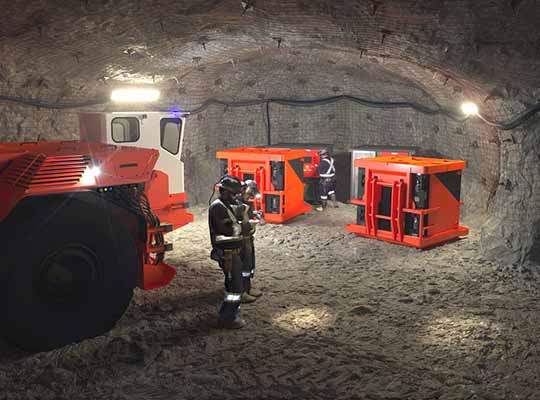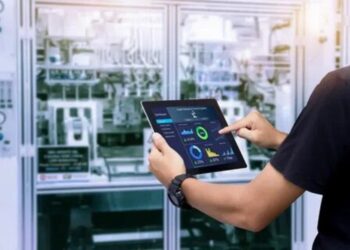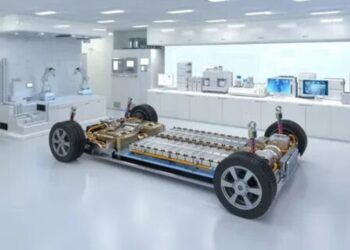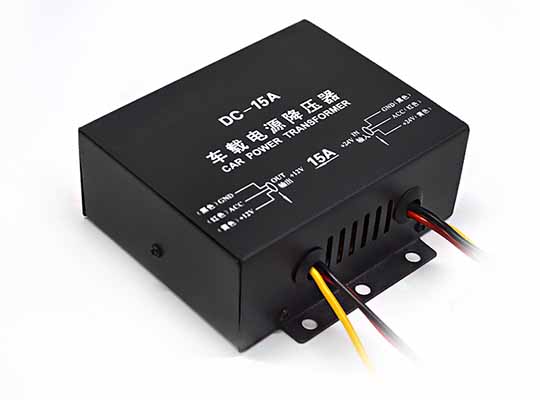BOSTON – Imagine mines with so much electricity production and storage that they do far more downstream processing. As reserves deplete, many will even transition to being zero-emission power stations and electricity storage for local communities and industry or even national grids. The cost of making-good becomes income from reinvention. That is the untold story of mining electrification, beyond the vital safety, greening, and cost reduction of electrics.
The new IDTechEx report, “Mining Electrification: Vehicles, Generation, Repurposing 2022-2042” is unique in looking at these poorly-covered aspects for 20 years ahead as well as the obvious opportunities updated. The commercially-oriented 310-page analysis reveals many surprises and gaps in the market for everything from the humble gravel pit to diamonds four kilometers below, and ocean-floor mining. All are headed for zero-emission battery-electric vehicles and processing, with electricity made on-site from sun, wind, and even water power each transitioning to better versions.
Electrification is inevitable, driven by cost, regulations, health, reputation, and ever-tougher location, morphology, and toxicity of remaining reserves. The unmanned mine has arrived and, to be optimal, it can only be electric. The report explains why faster adoption is possible, giving a competitive advantage. Learn how mines often have stronger market drivers and options for electrification than other industries. For example, with emerging technologies described, all mining can store or generate required electricity but often more, creating extra income.
Solar and wind power with energy independence is the mining trend but that means increased energy storage from hours to seasonal. See how mines will incorporate gravity storage, floating solar, caverns for compressed air storage all becoming electricity when needed. The report covers these and other mine-friendly options, with examples of excellence. Indeed, mines can transition to full repurposing when they are exhausted – to energy storage and production. Much of the cost of making-good becomes profit from these and other forms of repurposing.
The report surfaces several important issues. The financial benefits of electrification are often under-estimated, leading to wrong decisions. The vehicles will less often be expensively customized and different mine-to-mine. Mines are already ordering Tesla Cybertruks and construction vehicles where appropriate. The number, cost, and market value of mining electric vehicles by type are quantified 2022-2042 and there is a critical appraisal of electrification activities of over 50 suppliers and mines. See a roadmap of initiatives, new options, and technology progress 2022-2042 benchmarking best practices in other industries that are ahead in certain respects. How will solar in mining double its electricity per unit area? How can new forms of wind power have far less dead time? Why is there scope for consolidation of the mining supplier value chain?
Raghu Das, CEO of analysts IDTechEx explains,
“Many pivotal advances will occur after ten years but they need to influence planning and viability calculations now. What timing for unmanned mines, increased processing on-site, the final death of diesel, fuel-cell shakeout, tripling the endurance of battery vehicles before recharge? Should your mine transition to being electricity and/ or storage for others? Later change of course to incorporate some of these dramatic opportunities will be expensive and sometimes even impossible. An open-pit mine can provide massive solar power and massive gravity storage from summer to winter when solar is feeble. Sea-floor mining may produce its own wave and tidal power for local processing and ice for local fish farming as well. At least consider the emerging options.”
Sufficient for those with limited time, the Executive Summary and Conclusions of “Mining Electrification: Vehicles, Generation, Repurposing 2022-2042” gives the current and future mining situation and electrification options in new infograms, roadmaps, and forecasts. Interpretation and data gathering is by PhD level, multilingual IDTechEx analysts worldwide. See new transition options – diesel to electric and how mines themselves can profitably transition to other functions well before end-of-life.
The Introduction explains the mining mix, capex, valuation, and other trends, choice of electric vehicle powertrains, microgrid architectures, threats to grid supply, and escape routes. Chapter 3, “Mine electrification leading to end-of-life income instead of cost” gives the new options. Here are gravity storage in mountain quarries and abandoned mineshafts, compressed air storage in underground caverns, and much more.
Chapter 4, “New toolkit for energy-independent, zero-emission mine power”, explains mining power needs and emerging solutions enhancing brand image and speeding approvals. Chapter 5, “Mining electric vehicle appraisal: 23 manufacturers” covers all sizes of vehicles and critical appraisal of suppliers from across the world. Chapter 6 is “Autonomous and remotely operated mining vehicles in action” because electrics are intimately compatible with autonomy from described robotic giant trucks to remotely-operated underwater inspection robots in flooded mines. Chapter 7 presents “Enabling technologies for mining electric vehicles” meaning motors, batteries, and more.













